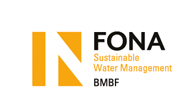Suitability of Eucyclops serrulatus (Fischer 1851) (Crustacea: Copepoda) for online biomonitoring of water quality using the new Microimpedance Sensor System GroundCare | Publikation | Grundwasser
Vorschau
Copepods are priority crustaceans for toxicity tests and higher tier environmental risk assessment, especially in marine ecosystems. Eucyclops serrulatus inhabit both epigean and stygal freshwater habitats; they represent optimal candidates for biomonitoring due to their wide range of habitats and geographical distribution, short life-cycle and easy laboratory culture. Their sensitivity towards acute exposures to copper, tributyltin (TBTH), bisphenol-A (BPA), carbamazepine (CBZ) and diclofenac (DFNA) was studied and their potential as sentinels in a novel online biomonitoring system was evaluated. Regarding the LC50s of BPA and TBTH, E. serrulatus adults were more sensitive than D. magna neonates, whereas the sensitivity towards Cu, diclofenac and carbamazepine was similar in both species. E. serrulatus was able to survive in the new Microimpedance Sensor System (MSS) for one week without food and showed constant activity when both light and flow stimuli were "on" during recording. In the MSS, they responded faster to a cooper pulse (0.5 mg/l) than D. magna, with a clear immediate increase in activity (escape behavior). However, they only slightly responded to nitrate pulses (50 and 100 mg/l). Furthermore, chronic exposures to nitrate led to significantly decreased activity in the copepods. The new MSS could be recommended to monitor groundwater and drinking water intakes with E. serrulatus as a new ecologically relevant and sensitive bio-indicator species.
Zum Produkt
Ansprechperson
Dr. Almut Gerhardt
T. +49 7531 9765096
M. info@limco-int.com


 Deutsch
Deutsch




